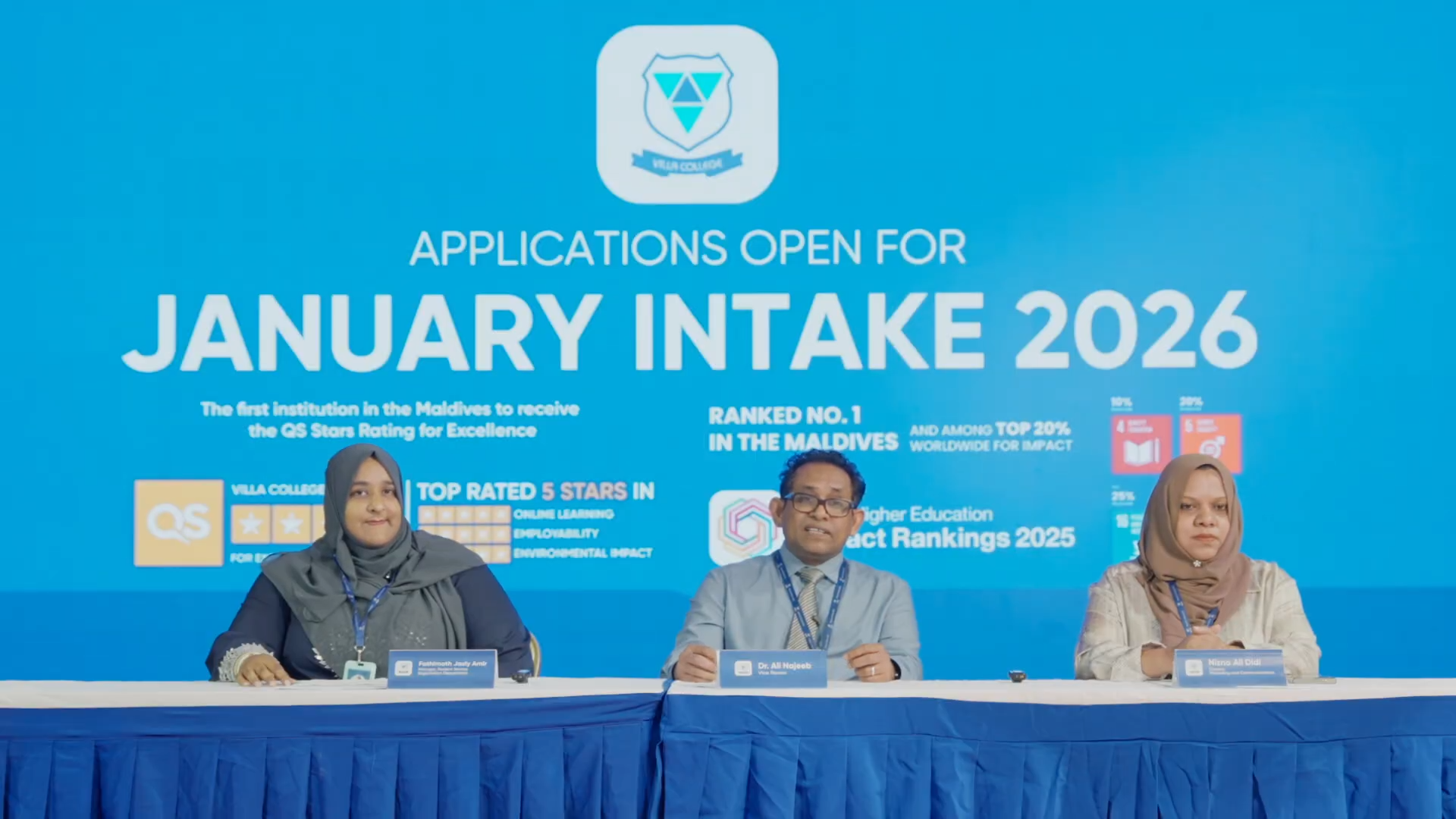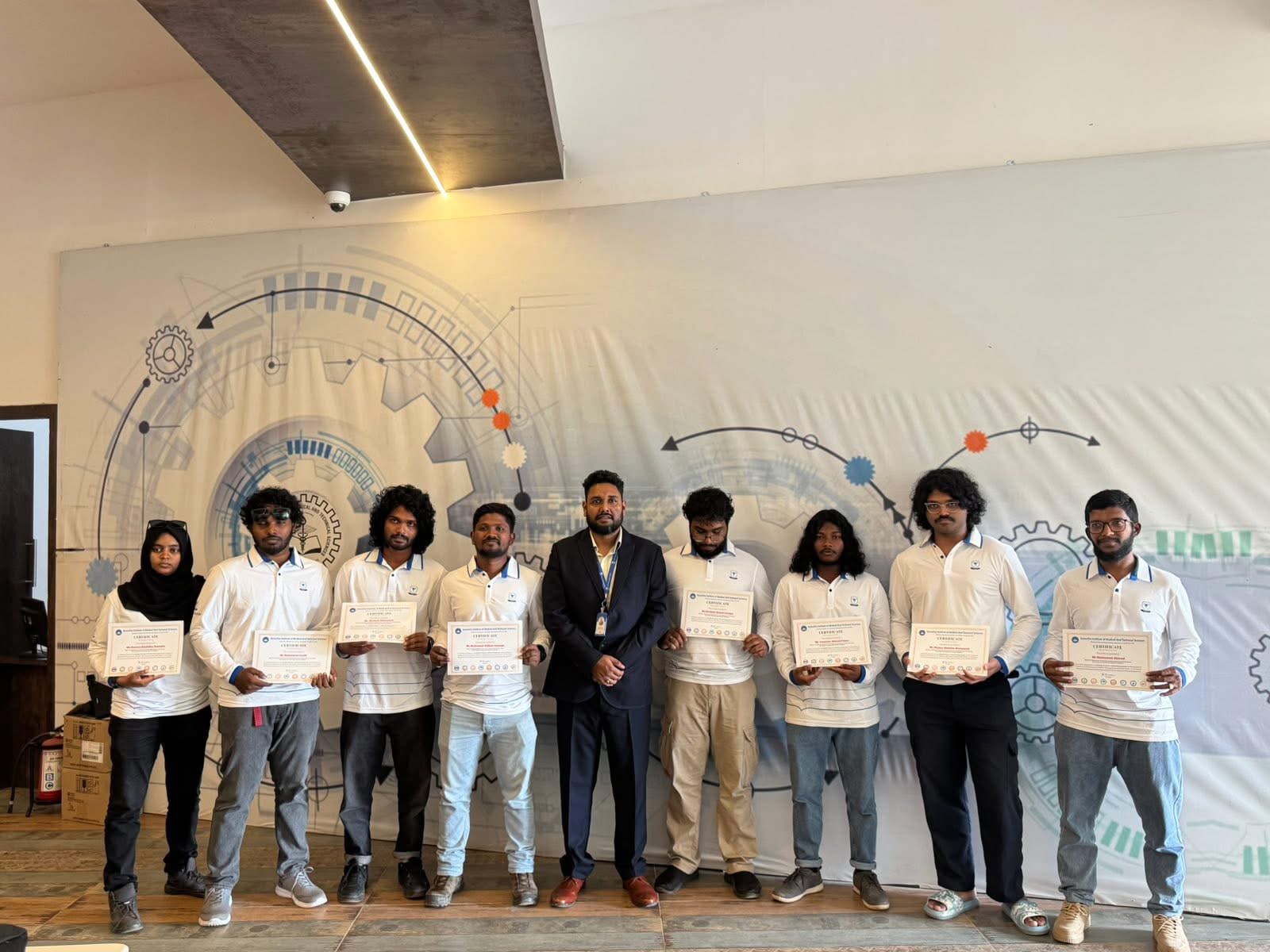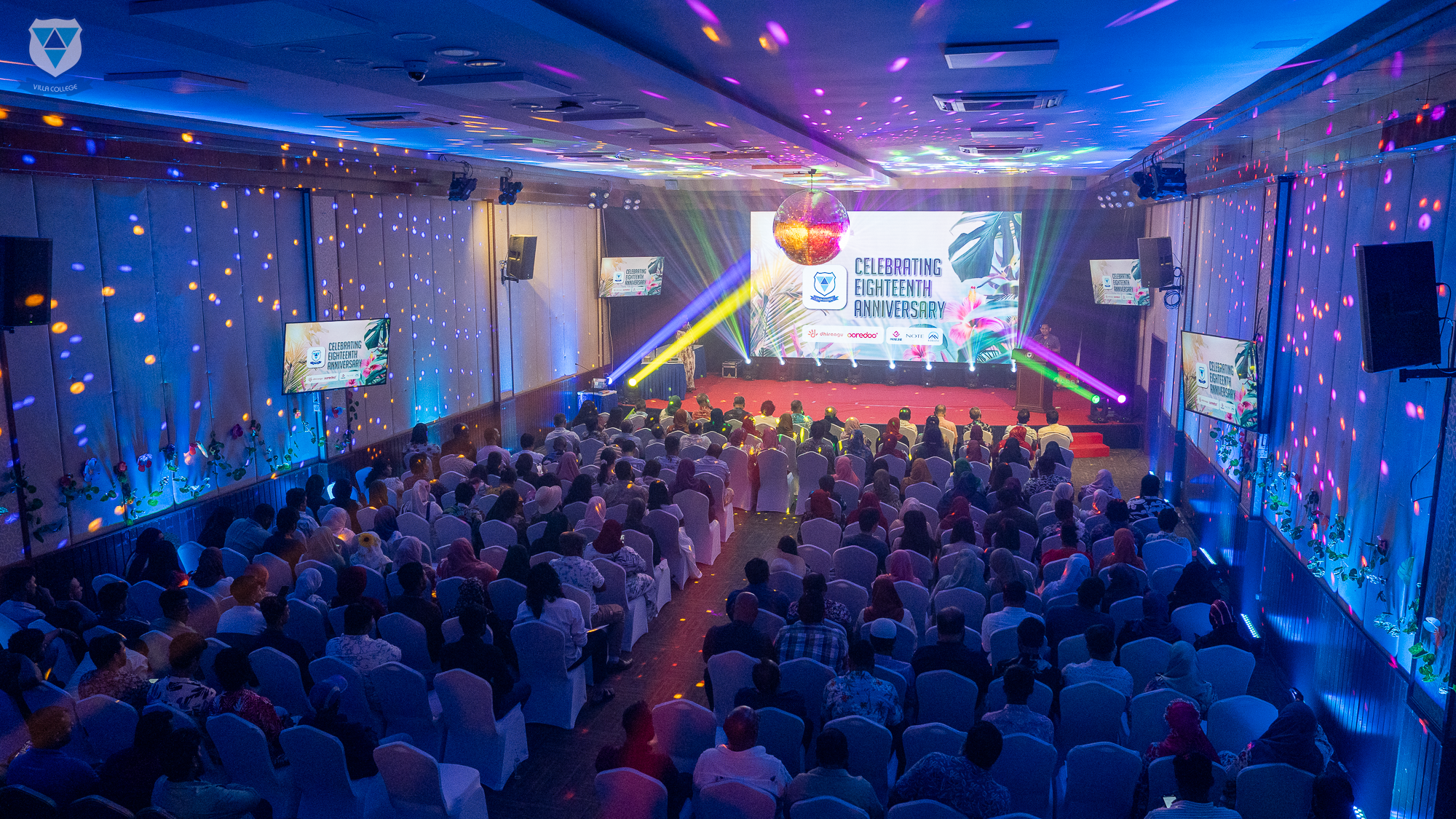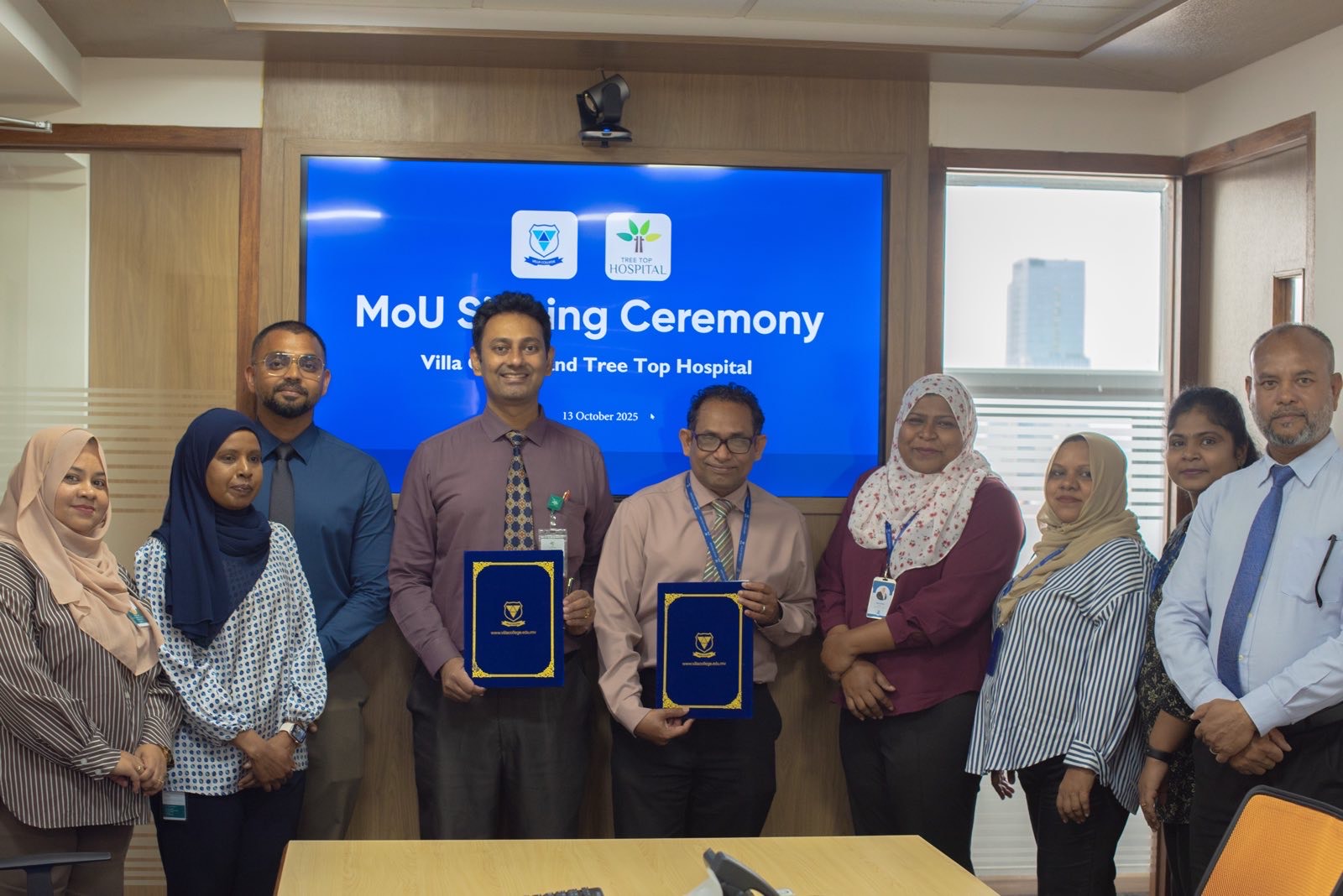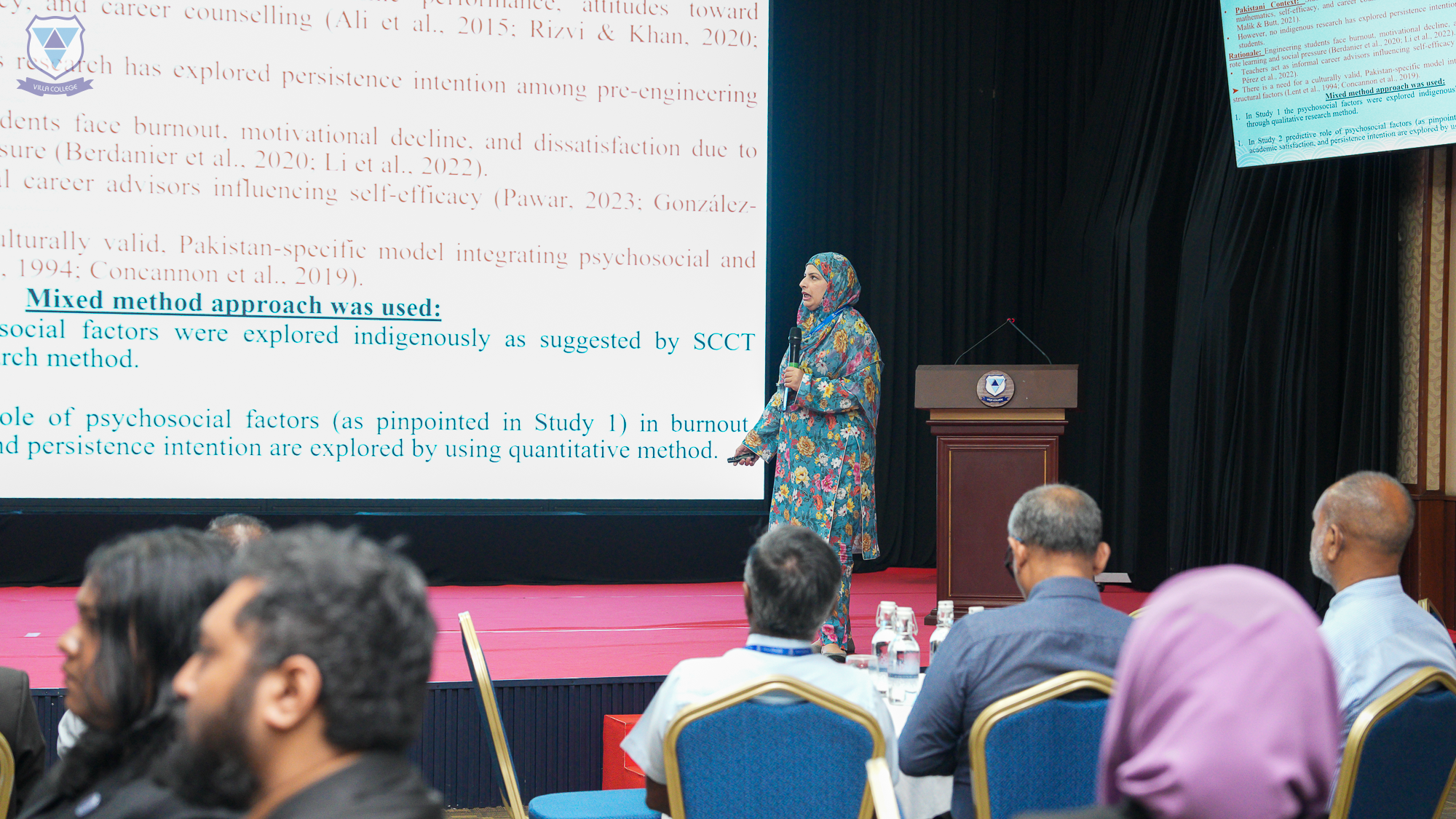
Â鶹ÊÓƵ hosted its inaugural International Psychology Conference on 12th October 2025, marking a significant milestone in its commitment to advancing psychological science. The event brought together a dynamic mix of distinguished researchers, dedicated students, and mental health professionals, creating a vibrant platform for sharing groundbreaking insights and fostering collaboration in psychological research and practice.
The conference featured a research presentation from the School of Psychology and Counselling by Dr. Fatima Afsar, Senior Lecturer, who explored psychosocial factors involved in academic satisfaction and persistence intention of high school students opting for engineering as a career. Our students showcased exceptional research spanning critical areas of psychological inquiry. Hawwa Sulaiman presented her qualitative exploration of quality time from the perspectives of stay-at-home and working mothers. Mariyam Shama Naseer shared a phenomenological study on the lived experiences of substance users from dysfunctional families.
A dynamic panel discussion on access to mental health and help-seeking behavior across generations featured Mariyam Malsa, Azra, Hamza, Zubair, Umeyrath, and Shiyaf, fostering important conversations about mental wellness in our community.
The conference extended its reach globally through online presentations. Asruani Cahya Fitria from Universitas Pendidikan Indonesia examined the influence of insecure attachment styles on loneliness in early adulthood within romantic relationships. Fathimath Shazleena explored the lived experiences of non-working mothers in the sandwich generation. Aaron Lauterbach from Western Sydney University discussed intergroup contact volition and everyday spatial practices in Greater Sydney. Zainab Usman from Batterjee Medical College presented a systematic review on cognitive stimulation therapies in dementia and related disorders. Angel Sanjay from the University of Bolton, RAK, shared research on virtual reality and EEG interventions for trauma relief in war-affected populations.
Our Master of Science Counselling students delivered compelling presentations including Nahidha Ismail's investigation of self-stigma's impact on help-seeking for mental health issues in the Greater Male' area. Sameema Hassan from the University of the Punjab explored socio-emotional experiences of maladaptive daydreamers having parasocial relationships. Hawwa Minha addressed physical and emotional challenges in Polycystic Ovary Syndrome. Hawwa Maaisha examined the relationship between social media connections and loneliness across age groups. Fathimath Eema Suwad presented the translation and first validation of the Modified Checklist for Autism in Toddlers Revised with Follow-up to the Maldivian context.
Fathimath Nabaha Naseer from Nottingham Trent University offered professional perspectives on the Maldivian juvenile justice system through a thematic study. Our Bachelor of Psychology students also made significant contributions with Aishath Fiureen Mohamed analyzing the impact of generational trauma displacement by single mothers in the Maldives, and Aminath Shan exploring the influence of parenting styles on adult attachment styles in the Maldives.
Beatriz Casquinho from ISCTE University Institute of Lisbon presented a scoping review mapping motivators of social change through intergroup dynamics and multi-level factors. Naeesha Abdul Gafoor explored mental health professionals' experiences of burnout. Our Master of Clinical Psychology students rounded out the conference with Aminath Nisfa's systematic review on clinical validity and accuracy of digital diagnostic assessment tools for young adults at risk of young-onset dementia, Fathimath Mahath's research on the relationship between mental health literacy and self-diagnosis among Maldivian youth using digital information platforms, and Aishath Shaiba Kinaanath's narrative exploration of persons recovering from substance use disorder.
This inaugural conference served as a powerful demonstration of Â鶹ÊÓƵ’s dedication to advancing psychological knowledge, fostering academic excellence, and addressing mental health challenges relevant to our community and beyond. We extend our sincere thanks to all presenters, participants, and attendees for contributing to a successful and inspiring event.
